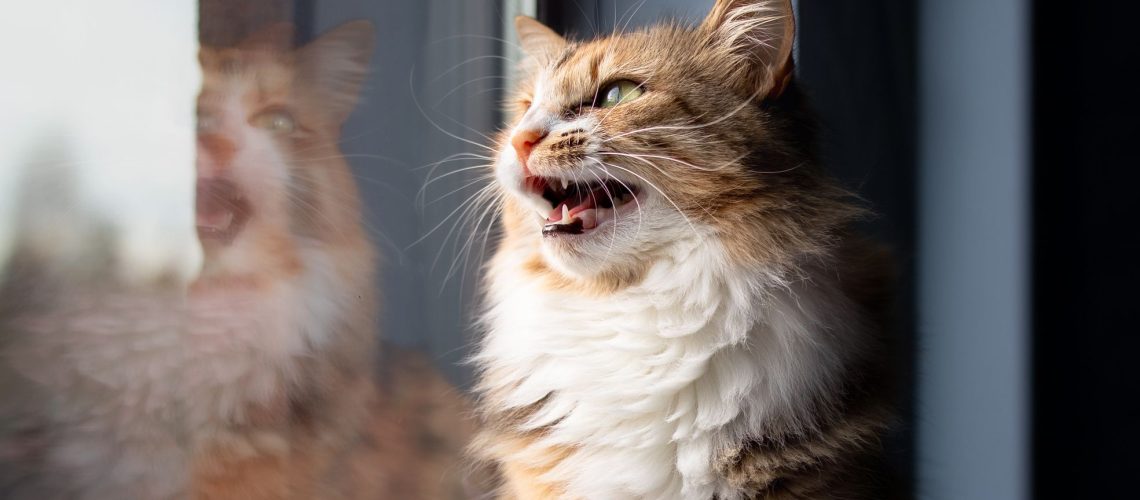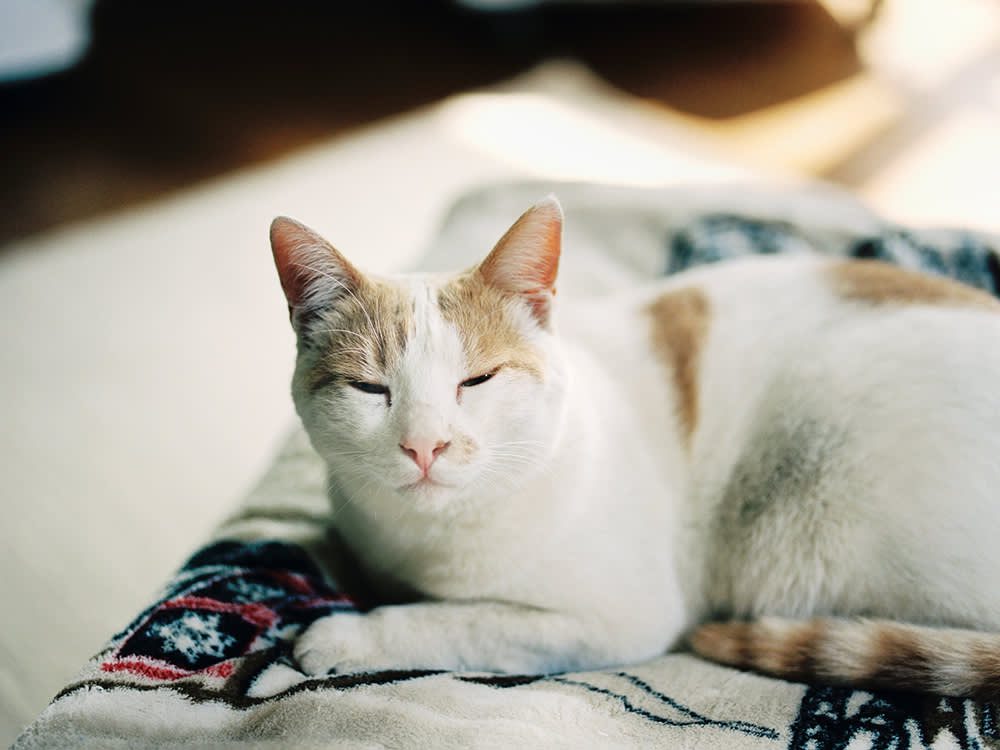Do you ever wonder why your cat gets so mesmerized by birds? It’s not just a random act of feline curiosity. There is actually a fascinating reason behind this behavior that will leave you amazed! Understanding the secret language between cats and birds can unlock a whole new world of insight into your furry friend's instincts and behaviors. By delving into this topic, you'll gain valuable knowledge that can help enhance your bond with your pet and provide them with the mental stimulation they need. So, let's dive into the captivating world of bird talk and uncover why cats chatter at birds! Get ready to be astounded by the hidden connections between two seemingly different species.
Key Takeaways:
- Cats chatter at birds as a predatory behavior rooted in their instinct to hunt.
- Chattering is a way for cats to express their frustration and anticipation when they cannot physically reach the birds.
- The chattering sound is caused by the rapid movement of the cat's jaw muscles, mimicking the biting motion used during hunting.
- Observing cats chattering at birds can provide entertainment for cat owners, but it should not be encouraged as it can lead to frustration and stress for the cat.
- Providing alternative outlets for predatory instincts, such as interactive toys or bird-watching stations, can help redirect a cat's energy and prevent excessive chattering behavior.
Bird Talk: Why Do Cats Make Chattering Sounds When They See Birds?
Understanding the Fascinating World of Cat Vocalizations
When cats see birds, they often make a unique sound called chattering. It's like a series of quick, high-pitched clicks or chirps. But have you ever wondered why cats do this? Well, let me tell you! As an expert in cat behavior, I can explain that chattering is a natural instinct for cats when they are excited or hunting prey. It's their way of expressing their anticipation and eagerness to catch the bird.
The Mysterious Language of Cats
Cats communicate in various ways, and vocalizations play a significant role in their communication toolbox. Chattering is just one of the many sounds they use to express themselves. Cats use different types of vocalizations to convey different messages. For example, they may hiss when they feel threatened or growl when they are angry. But chattering is unique because it usually happens when cats spot birds.
Understanding How Cats Communicate Through Vocalizations
Cat Talk: Decoding Feline Vocal Language
Do you ever wonder what your cat is trying to say when it meows or purrs? Understanding cat vocalizations can give us insights into their emotions and needs. Let's explore some common feline sounds!
- Meow: Cats use meows to communicate with humans more than with other cats. Each meow has its own meaning, such as "feed me" or "pet me."
- Purr: A soothing purr usually means your cat is content and relaxed.
- Hiss: When a cat feels threatened or scared, it may hiss as a warning sign.
- Chirp: This cute sound often happens when cats see something exciting, like birds or toys.
The Science Behind Cat Chattering
Chattering is a fascinating behavior that scientists believe is linked to a cat's hunting instincts. When a cat sees birds, it triggers their predatory drive, and they become fixated on the potential prey. The chattering sound may be an instinctual response to the frustration of not being able to reach their target. It's almost as if they are mimicking the bird's chirping sounds in an attempt to lure it closer. This behavior is more commonly observed in cats who spend time outdoors or near windows where they can see birds.
Curious Cat Behaviors: What Happens When Cats Spot Birds?
A Moment of Fascination: Cats and Their Feathered Friends
Imagine this: you're sitting by the window, and suddenly your cat spots a bird outside. What happens next? Well, for many cats, it's like a switch flips inside their heads. They become completely focused on the bird, their eyes widen, and their body tenses up with excitement. You might notice them making those chattering sounds we talked about earlier.
The Hunting Instinct Takes Over
When cats see birds, their natural hunting instincts kick in. Even though our domesticated feline friends don't need to hunt for food anymore, these instincts are deeply ingrained in them from their wild ancestors. The chattering sound they make is believed to be an expression of their intense desire to catch the bird. It's almost as if they are practicing their hunting skills by imitating the bird's calls.
Do All Cats Chatter at Birds? Exploring the Variations
Cat Personalities: Different Reactions to Feathered Visitors
While chattering is a common behavior among cats when they see birds, not all cats do it. Just like humans, cats have unique personalities and preferences. Some cats may be more vocal and chatty, while others may prefer to observe silently. It's also possible that some cats may not have a strong prey drive or may have learned that making noise scares the birds away.
Other Reactions to Bird Watching
Chattering is just one of the many ways cats react when they spot birds. Some cats might crouch low, ready to pounce, while others might try to get closer by pawing at the window or chirping softly. Each cat has its own way of expressing their fascination with these feathered creatures. So, if your cat doesn't chatter, don't worry! They might have their own unique way of bird watching.
The Connection Between Chattering and Bird Catching in Cats
From Sound to Action: Chattering as a Hunting Technique
The chattering sound that cats make when they see birds serves a purpose beyond mere communication. It's believed that this behavior helps them sharpen their hunting skills. By imitating the bird's calls, they may be trying to confuse or attract it closer, giving them a better chance of catching it. So next time you hear your cat chattering at birds, remember that it's not just an amusing sound but a strategic move in their hunting playbook.
Successful Hunters: The Joy of Achievement
For outdoor cats who have the opportunity to chase and catch birds, chattering can be a rewarding experience. When they finally catch their prey after all that anticipation and excitement, it brings them a sense of satisfaction and accomplishment. It's important to note that as responsible pet owners, we should discourage our cats from hunting birds as it can harm local wildlife populations.
The Benefits of Understanding Cat Behavior for Birdwatchers and Pet Owners
Building a Stronger Bond with Your Feline Friend
By understanding why cats chatter at birds, we can deepen our connection with them. We can appreciate their natural instincts and provide them with alternative ways to express their hunting drive, such as interactive toys or puzzle feeders. This not only keeps them mentally stimulated but also strengthens the bond between us and our feline companions.
Promoting Responsible Bird Watching
For birdwatchers, understanding cat behavior can help us take precautions to protect the birds we love observing. By keeping our cats indoors or creating safe outdoor enclosures, we can prevent them from harming local bird populations. This way, we can enjoy the beauty of birds without causing harm to these delicate creatures.
So next time you hear your cat chattering at birds, remember that it's a fascinating behavior rooted in their natural instincts. Embrace their curiosity and find ways to engage their hunting drive in a safe and responsible manner.
In conclusion, cats chatter at birds because they are excited and trying to imitate the sounds of their prey. It is a natural instinct for cats to communicate with their potential prey, even if they cannot reach them.
Why do cats make a clicking sound?
When a cat chatters, it indicates that the cat is prepared and eager to hunt. If the cat hisses, it means it is about to attack, but when it clicks, it shows excitement for hunting. The cat may even become frustrated when it cannot catch its prey, especially when it sees birds or other animals through windows.
Do birds taunt cats?
Birds have the ability to mock and play with other species, particularly those that hunt them such as cats. On my friend's farm, there was an older Maine Coon cat that would frequently be swooped and lightly tapped on the back by a mockingbird. The mockingbird could have caused more harm if it had intended to.
Why does my cat make weird noises when he sees a bird?
Cat chattering, also known as chirping or twittering, occurs when a cat gets excited by something it sees, such as a bird or small animal. This behavior is a result of their natural hunting instincts.
What does cat trilling mean?
Trilling is a common behavior seen in adult cats when they are showing affection and happiness. Your cat may also use trilling as a way to communicate that they would like to be petted. Additionally, trilling can be a method for your cat to get your attention when they want something.
Do bird sounds calm cats?
Recent studies indicate that although cats may enjoy music, they are not particularly interested in human music and are more responsive to songs that are specifically designed for them, with frequencies and tempos that imitate the sounds of purring and birds.
Are cats friendly to birds?
Living peacefully with both cats and birds can be possible, but it depends on the individual personalities of each animal. While some cats may not show any interest in a pet bird, others may constantly try to hunt it. It is important to evaluate the characteristics of your pets and be vigilant if you choose to let them interact.

















